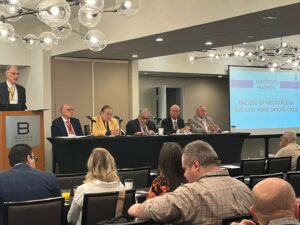The Racketeer Influenced and Corrupt Organizations (RICO) Act has long been associated with high-profile organized crime prosecutions. However, RICO claims may also be asserted in federal civil actions. See 18 USC § 1964. Plaintiffs will often characterize typical fraud claims as RICO conspiracies in order take advantage of RICO’s greater penalties and its broader theories of liability.
Recently Egan & Golden represented a numismatic coin dealer in a civil RICO case in federal court in the US District Court for the Eastern District of New York. Plaintiff had accused the dealer of being part of a RICO conspiracy of Long Island coin dealers that defrauded his elderly father and others using various schemes including pitching so-called high-reward/low-risk investments, charging customers’ credit cards without permission, drawing on customers’ bank accounts without authorization, and convincing customers to sell their recently purchased coins at a fraction of the original purchase price.
Brian T. Egan and Christopher Bianco successfully argued that plaintiff, as the son of the purported victim, lacked standing to bring the action in federal court, notwithstanding an alleged power of attorney granting the son full authority to commence litigations on behalf of his father. The firm further noted that the RICO claims asserted against defendant did not set forth the defendant’s role in the alleged RICO conspiracy with sufficient particularity, as required under Rule 9(b) of the Federal Rules of Civil Procedure. Finally, Egan & Golden contended that the pendant state law claims failed to either state a claim for which relief could be granted or were untimely under CPLR Section 202, New York’s “borrowing statute”. The “borrowing statute” prevents out-of-state plaintiffs from asserting claims against New York defendants that would be barred by the corresponding statute of limitations in plaintiff’s state.
Complex federal procedure and rules of standing can be a trap for the unwary, especially in complicated civil fraud and RICO cases. Federal courts apply stricter pleading standards than New York courts. Plaintiffs cannot assume that they will survive a motion to dismiss and reach discovery to uncover evidence to bolster their fraud or RICO claims. Egan & Golden has extensive experience in representing plaintiffs and defendants in federal court and assisting clients in navigating the labyrinth of federal procedure.




